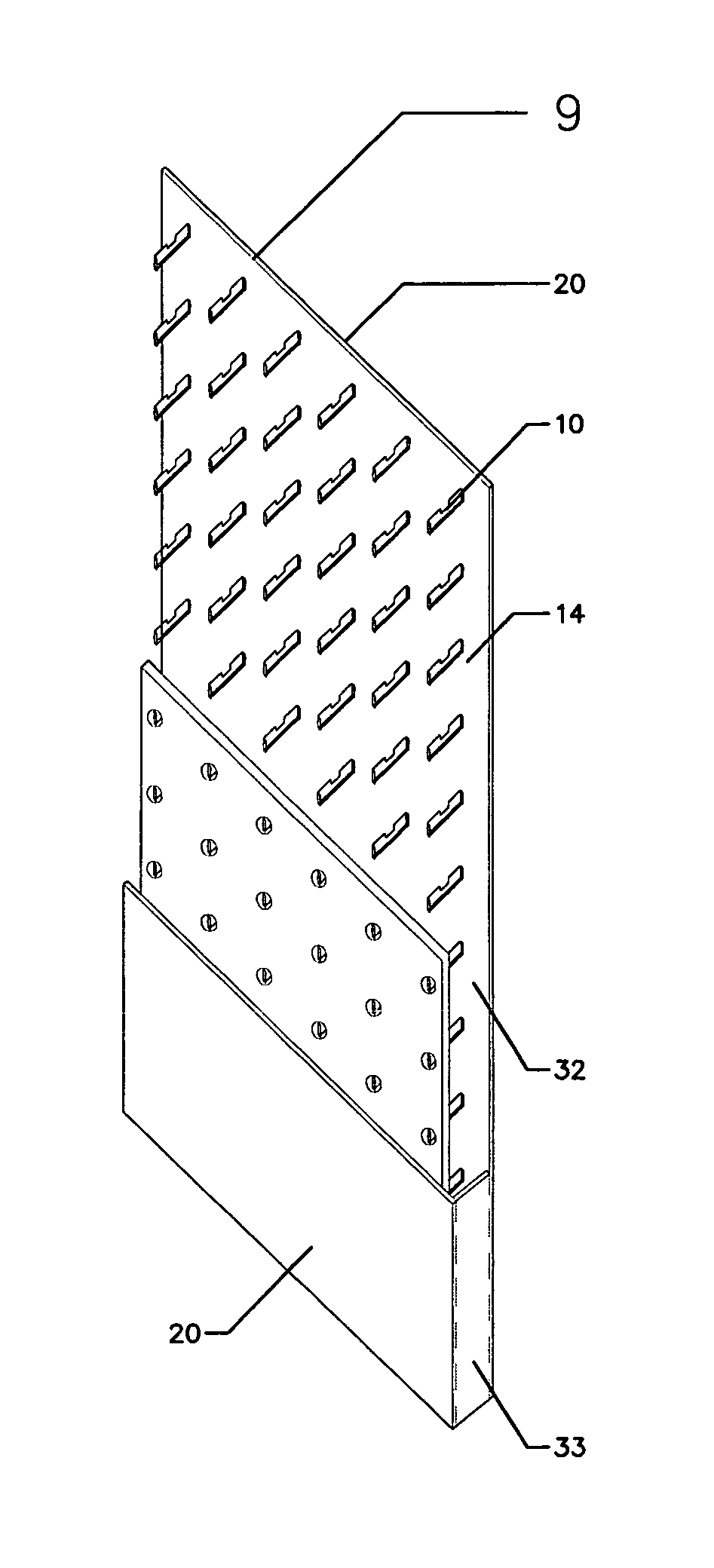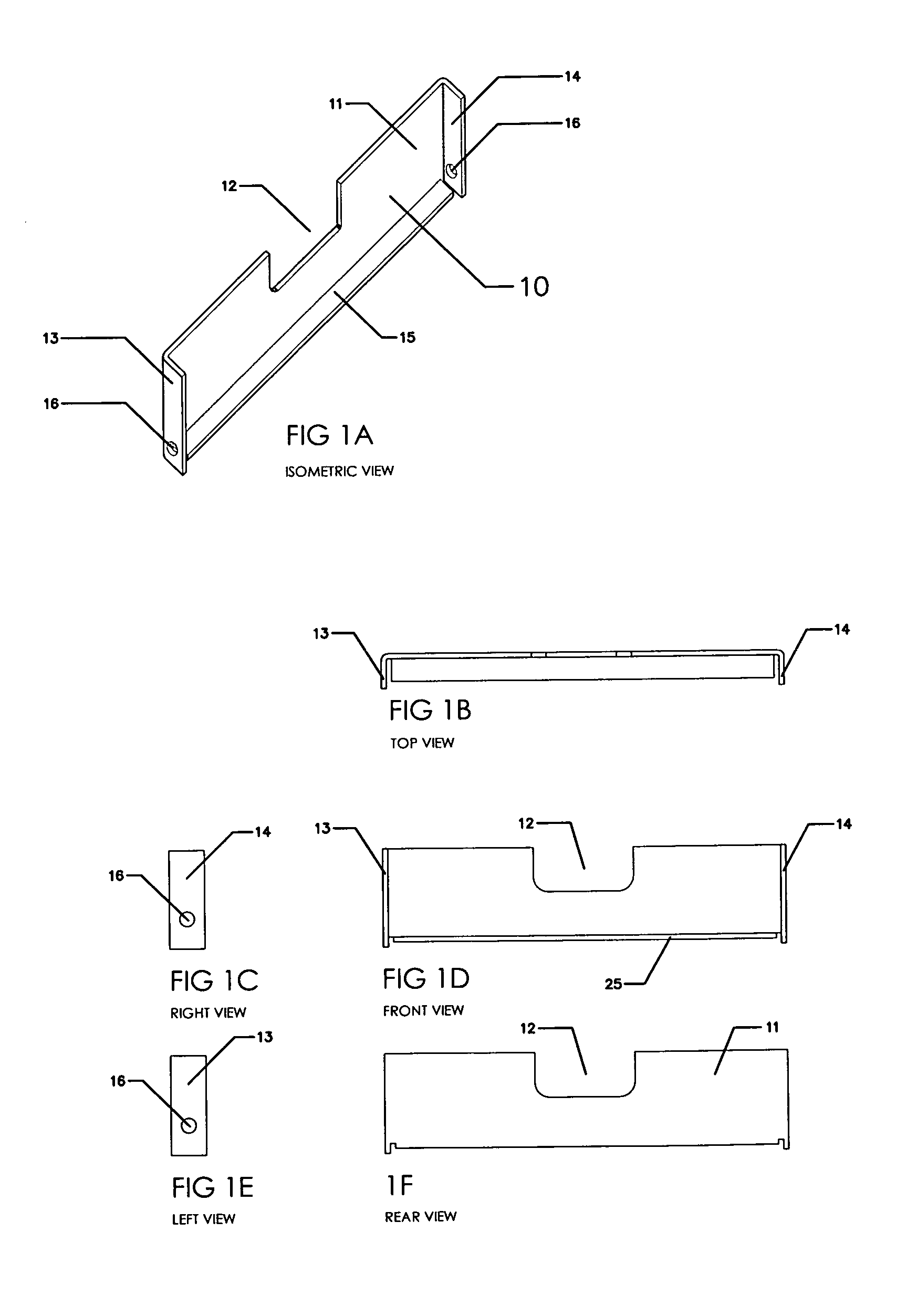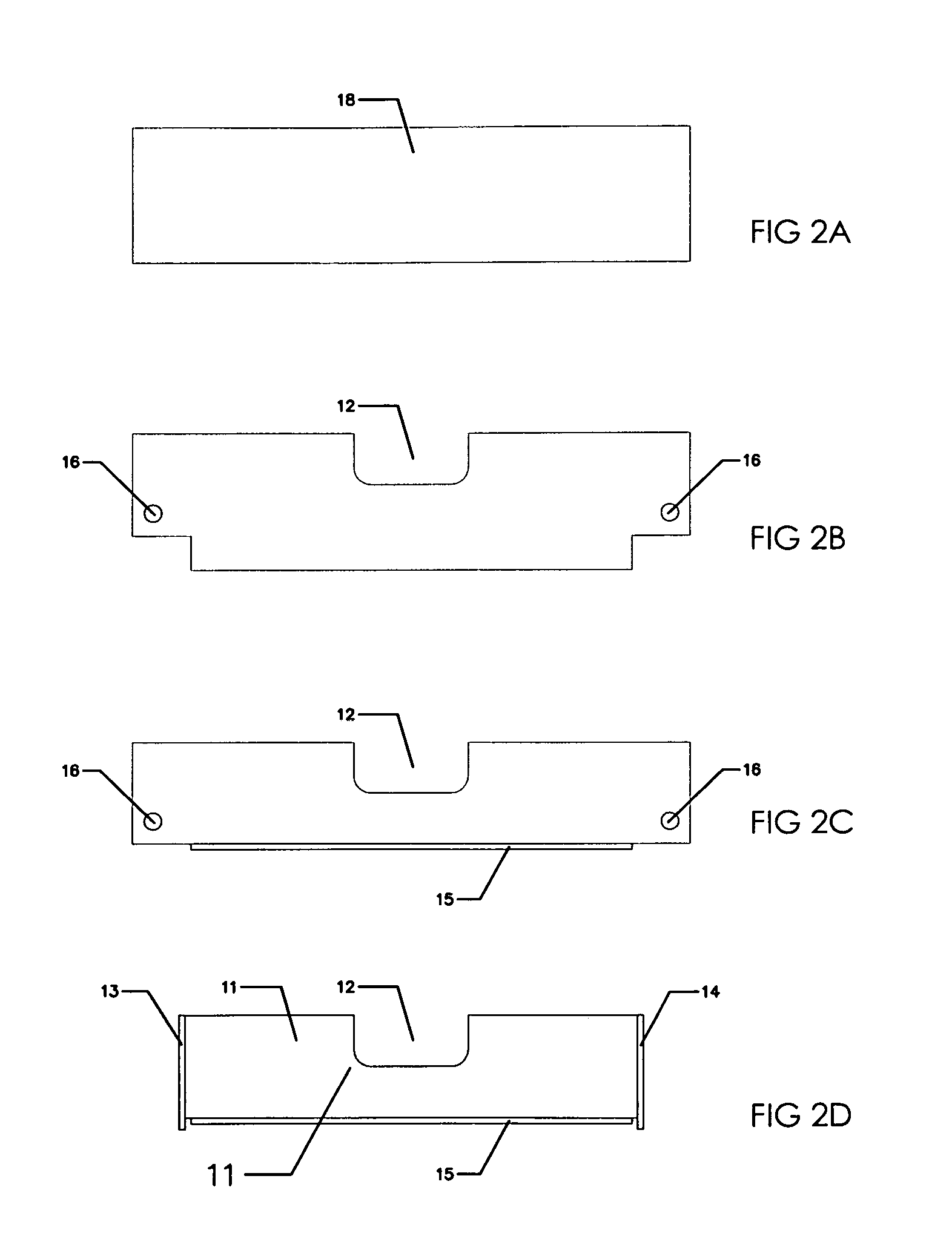Holding units for stay in place molds
a technology of holding units and molds, applied in the field of molds for stay in place, can solve the problems of debilitating the whole structure, difficult alignment and proper connection of individual molds, and external components complicating the construction process, so as to achieve uniform and strong large-scale concrete structures, strong firmness, and excellent resistance to internal pressur
- Summary
- Abstract
- Description
- Claims
- Application Information
AI Technical Summary
Benefits of technology
Problems solved by technology
Method used
Image
Examples
embodiment 9
[0027]On the other hand, mold embodiment 9 as illustrated in FIG. 4C has a closing unit 33 enclosing the internal cavity 32 of the mold 9. Said closing unit 33 may be made of fiber cement panel that has been cut off at the convenient size in order to close the internal cavity 32 of the mold 9. Said closing unit 33 may be installed once the mold is already installed at the construction site and previous to fill the internal cavity 32 of the mold 9 with liquid concrete mixture.
[0028]The manufacture of the mold embodiments illustrated FIGS. 4A to 4C is shown in FIGS. 5A to 5E, wherein the initial step is the proper setting of the fiber cement boards 20. Said setting requires a series of perforations in a particular size or shapes and further distributed in a particular pattern of columns (verticals) and rows (horizontal) at a predetermined distance and within a particular surface area of the fiber cement panels 20. Each perforation is intended to provide a place for fastening a holding...
embodiment 8
[0034]Optionally and depending of the construction needs, interconnecting units 31 may be connected to one of the lateral sides of the mold 7, if necessary, in order to provide a joining mechanism as shown in embodiment 8 illustrated in FIG. 4B, as may be required depending of the size of desired wall under construction.
[0035]In operational terms, the mold embodiments 7, 8 and 9 are used in the construction of concrete or cement walls, houses, buildings and similar structures. FIG. 7 illustrates the assembled of mold embodiment 7 to a given structure site, wherein dowel 52 on construction site 53 is attached to the vertical re-bar 65 and wherein horizontally oriented re-bars 66 are resting on indentations 12 of holding units 10. Similarly, FIG. 8A to 8C illustrate the joining of two mold embodiments 8 in the construction of a larger size wall 68 by means of interconnecting unit 31 and wherein the distribution and accommodation of vertical re-bars 65 and horizontal re-bars 66 inside ...
PUM
| Property | Measurement | Unit |
|---|---|---|
| angle | aaaaa | aaaaa |
| height | aaaaa | aaaaa |
| length | aaaaa | aaaaa |
Abstract
Description
Claims
Application Information
 Login to View More
Login to View More - R&D
- Intellectual Property
- Life Sciences
- Materials
- Tech Scout
- Unparalleled Data Quality
- Higher Quality Content
- 60% Fewer Hallucinations
Browse by: Latest US Patents, China's latest patents, Technical Efficacy Thesaurus, Application Domain, Technology Topic, Popular Technical Reports.
© 2025 PatSnap. All rights reserved.Legal|Privacy policy|Modern Slavery Act Transparency Statement|Sitemap|About US| Contact US: help@patsnap.com



